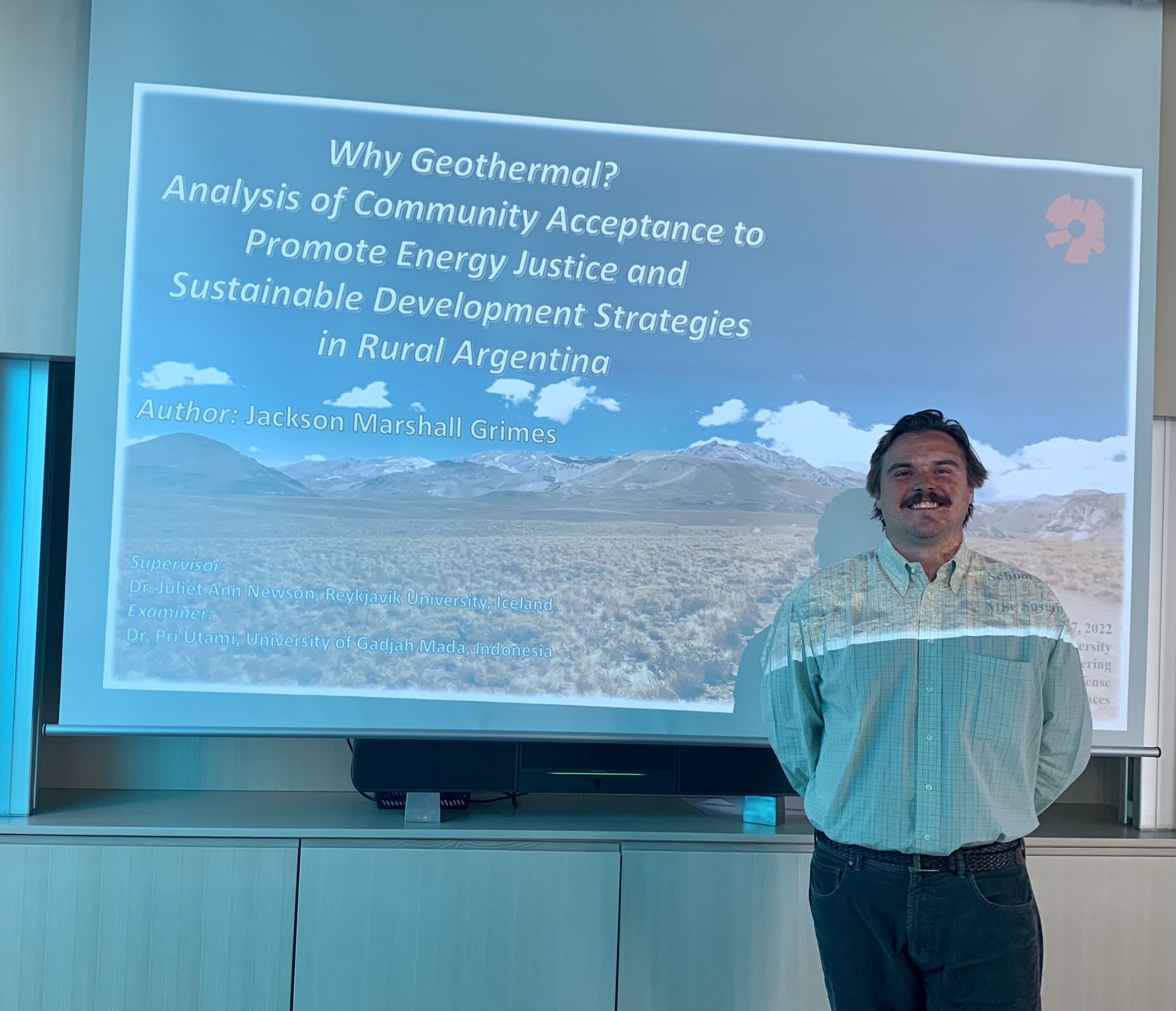MSc Thesis: Why Geothermal? Analysis of Community Acceptance to Promote Energy Justice and Sustainable Development Strategies in Rural Argentina
REYKJAVIK, May 27 - MSc in Sustainable Energy candidate, Jackson Marshall Grimes, successfully defended his master's thesis where he investigates Community Acceptance to Promote Energy Justice and Sustainable Development Strategies in Rural Argentina. Jackson's work was supervised by Dr. Juliet Ann Newson from Reykjavik University and examination was conducted by Dr. Pri Utami from the University of Gadjah Mada.

Jackson begins by highlighting the undeniable fact that as greenhouse gases continue to rise, demand is increasing for meaningful and workable solutions to combat climate change. Many countries are broadening their energy matrix and exploring opportunities to develop Geothermal Power Projects (GPPs), often in regions where industrialization has not occurred. He then goes on to state that as the number of GPPs in pre-feasibility grows, it is imperative that the development of these projects is done in a socially just and equitable manner. He emphasizes decision-makers should act early in the planning of renewable energy ventures to adequately inform the public of risks and benefits.
Jackson then goes on to talk about his research, which investigates community acceptance and understanding of geothermal energy amongst the people of Varvarco, a small, remote village in the Argentinean Andes. Varvarco is the closest settlement to Argentina's highest potential geothermal project, Domuyo. Through a series of one-on-one interviews, internet surveys, and town hall discussions, Jackson tests his theory that better education and encouraging interest can improve public opinion of geothermal technologies among marginalized populations. Based on qualitative data gathered from his study, Jackson suggests a variety of direct-use projects to continue to enhance public perception of geothermal energy. The results of his study are then discussed in the context of energy justice in developing economies and which sustainable development goals can be championed in Varvarco.
Jackson concludes with his finding that opening a dialogue with local stakeholders and embracing their concerns developers can build trust. When local needs are actively incorporated into design solutions, the result can be impactful and balanced GPPs. Ignoring the traditions of the people who have lived for generations in zones that policymakers recently set aside for renewable energy enterprises has led to social resistance movements. When contractors work alongside communities early in project planning, site-specific and circular designs can be integrated into the daily lives of the population most affected by the rush to carbon neutrality.
Congratulations Jackson on an excellent thesis defense!
